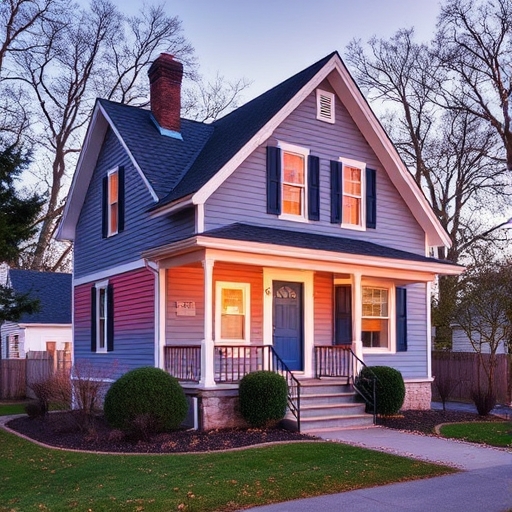How Long Does It Take to Paint a House?
Painting a house is a significant undertaking that can transform the look and feel of your home. Whether you’re planning to refresh the exterior or give the interior a new coat of color, one of the most common questions that arise is, “How long does it take to paint a house?” We will explore various factors that influence the duration of a house painting project, the average time frames for different scenarios, and tips to streamline the process.
Factors Influencing Painting Time
The time it takes to paint a house can vary widely based on several factors. Here are some of the most significant considerations:
1. Size of the House
-
- Square Footage: Larger homes require more paint and time. A small home may take just a few days, while a larger home could take weeks.
- Number of Stories: Multi-story homes often require more time due to the complexities of working at heights.
2. Type of Paint
-
- Acrylic vs. Oil-Based: Acrylic paints typically dry faster than oil-based paints, affecting overall project time.
- Finish Types: Different finishes (matte, semi-gloss, gloss) may require different application techniques and drying times.
3. Surface Preparation
-
- Condition of Surfaces: If the surfaces are in poor condition (peeling paint, cracks, etc.), more time will be needed for repairs and prep work.
- Cleaning and Priming: Properly cleaning and priming surfaces is crucial and can add significant time to the project.
4. Weather Conditions
-
- Humidity and Temperature: High humidity and low temperatures can slow down the drying process, extending the time frame.
- Rain and Wind: Outdoor painting is highly dependent on weather. Rain can halt progress completely, while wind can make painting difficult.
5. Number of Coats
-
- Single vs. Multiple Coats: Most paint jobs require at least two coats of paint for optimal coverage and durability, which doubles the time needed.
- Accent Walls or Trim: Additional coats for accent walls or trim can also extend the project duration.
6. Experience Level
-
- Professional vs. DIY: Professional painters often work faster and more efficiently than DIYers, who may take longer due to inexperience.
- Team Size: A larger team of professional painters can complete the job more quickly than a single person.
7. Interior vs. Exterior Painting
-
- Interior Painting: Generally quicker as it doesn’t involve weather considerations but may still be affected by furniture and room size.
- Exterior Painting: Often takes longer due to the need for ladders, scaffolding, and weather considerations.
Average Timeframes for Painting a House
Exterior Painting
| House Size | Estimated Time (Days) |
|---|---|
| Small (1,000 sq ft) | 3-5 days |
| Medium (1,500 sq ft) | 5-7 days |
| Large (2,500+ sq ft) | 7-14 days |
Interior Painting
| Room Type | Estimated Time (Hours) |
|---|---|
| Small Room (e.g., Bathroom) | 4-6 hours |
| Medium Room (e.g., Bedroom) | 6-8 hours |
| Large Room (e.g., Living Room) | 8-12 hours |
Total Time for a Full House Interior
For an average-sized home (about 2,000 sq ft), painting all rooms might take approximately 5-10 days, depending on the number of rooms and the complexity of the job.
Steps to Streamline the Painting Process
1. Plan Ahead
-
- Choose Colors Early: Decide on colors before starting to avoid delays.
- Gather Supplies: Ensure you have all necessary supplies on hand (paint, brushes, rollers, drop cloths, etc.).
2. Prepare Surfaces
-
- Clean and Repair: Clean surfaces and make necessary repairs before painting.
- Priming: Use primer where needed to ensure better paint adhesion and coverage.
3. Use Quality Materials
-
- Invest in Good Paint: High-quality paints might be more expensive but often require fewer coats and provide better coverage.
- Quality Tools: Use quality brushes and rollers to speed up the application process.
4. Organize the Workspace
-
- Declutter: Remove furniture and other items from the area being painted.
- Use Drop Cloths: Protect floors and furniture to minimize cleanup time.
5. Consider Professional Help
If you’re short on time or unsure about your painting skills, hiring professionals could save you time and ensure a high-quality finish.
Comparing DIY vs. Hiring Professionals
| Criteria | DIY | Hiring Professionals |
|---|---|---|
| Time Commitment | Longer, especially for beginners | Generally faster |
| Cost | Lower (if you already have supplies) | Higher, but includes labor |
| Quality Control | Variable, depends on skill | High, experienced painters |
| Convenience | Requires planning and effort | Less effort, managed by pros |
| Final Outcome | May need touch-ups | Professional finish |
Frequently Asked Questions (FAQ)
How long does it take to paint a single room?
The time to paint a single room can vary based on its size and complexity, but generally:
- Small Room: 4-6 hours
- Medium Room: 6-8 hours
- Large Room: 8-12 hours
Do I need to wait between coats of paint?
Yes, you typically need to wait for the first coat to dry before applying a second coat. This can take anywhere from 1 to 8 hours depending on the type of paint and environmental conditions.
Can I paint my house in the winter?
Yes, but be mindful of temperature and humidity levels. It’s best to use paint designed for low temperatures if you choose to paint during the colder months.
What’s the best time of year to paint the exterior of a house?
The best time for exterior painting is typically during the spring or fall when temperatures are moderate, and humidity levels are lower.
How can I speed up the drying process?
To speed up the drying process, ensure proper ventilation, use fans, and maintain a consistent temperature in the painting area.
Conclusion
Painting a house can be a daunting task, but understanding the factors that influence the timeline can help you manage your expectations and plan accordingly. Whether you choose to tackle the project yourself or hire professionals, knowing the average time frames and preparation steps can make the process smoother and more efficient. With proper planning and execution, you can achieve a beautiful finish that enhances your home’s aesthetic appeal.

